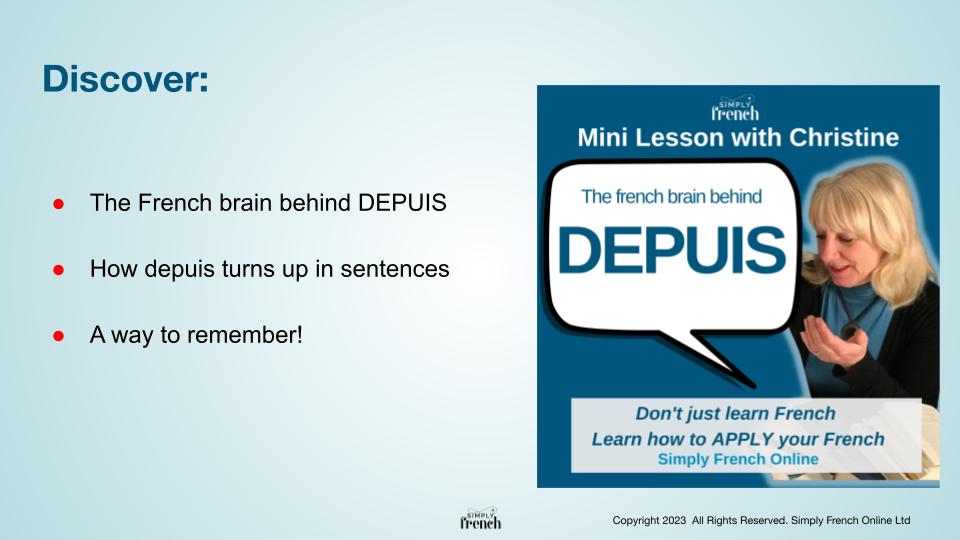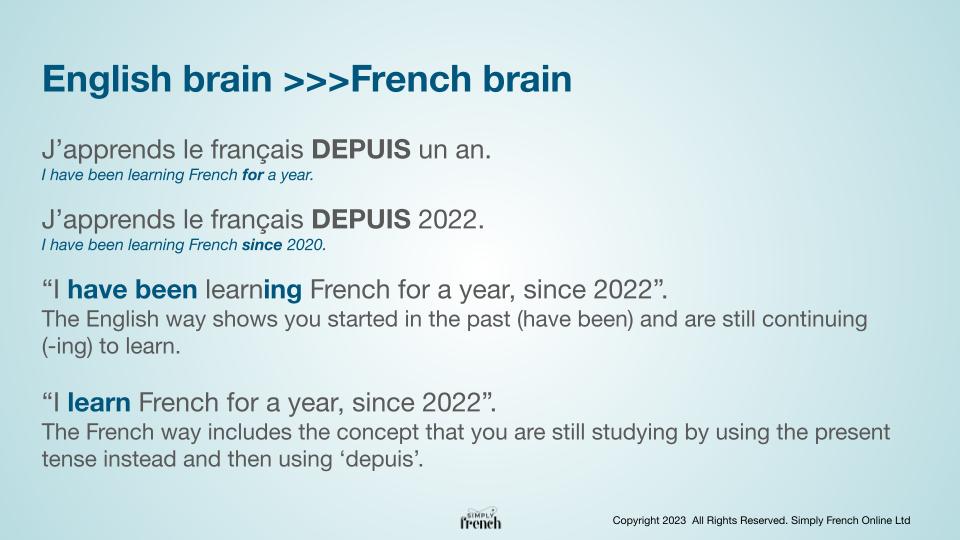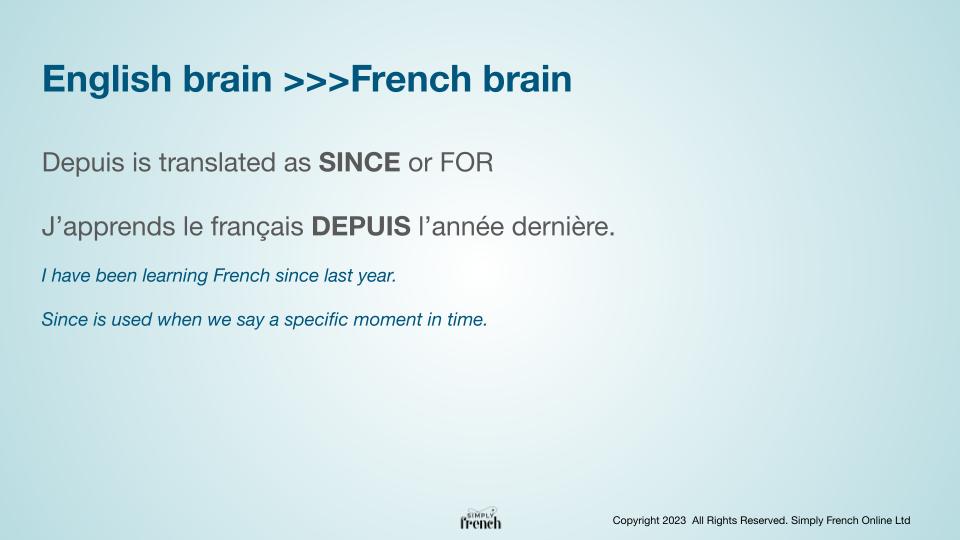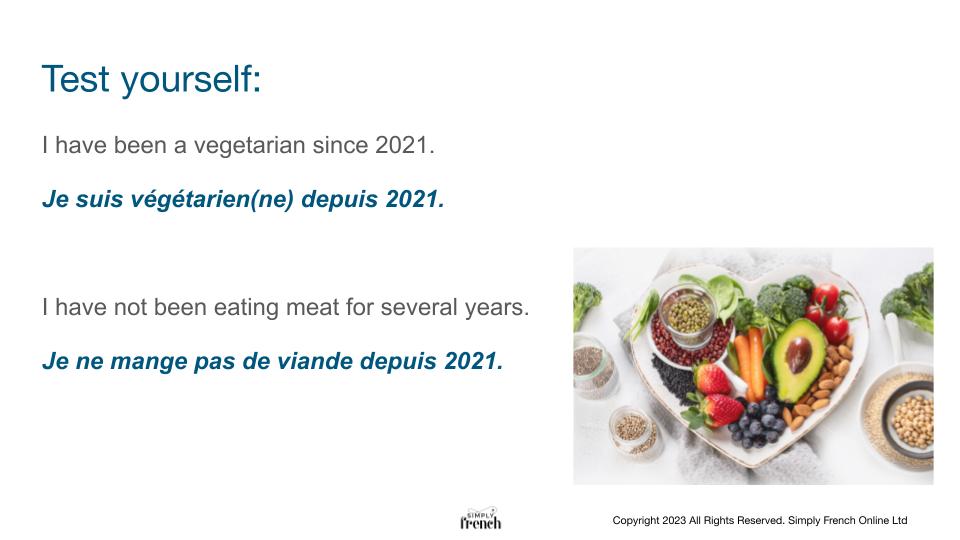How to use DEPUIS in French
Mar 21, 2023Do you get in a dither using DEPUIS in French? Get into the French brain and make life easier with DEPUIS.
The thing is, we shy away from using tenses like “have been . . . ing” because it looks really complicated.
But actually, instead of wasting time translating all the time, if only you understood how the French manage this . . .
It’s easier than you think, and a pleasant surprise that we will never mess up with Depuis again after! (That’s the plan!)
In this mini-lesson you will discover:
- The French brain behind DEPUIS
- How depuis turns up in sentences
- A way to remember!

What does “depuis” mean in French?
For once, French is easier than English. Oui, oui… Why?
Because you can have one French word for 2 English options!
Let’s observe these 2 sentences:
- J’apprends le français depuis un an >>> I have been learning French for a year, since 2022.
- J’apprends le français depuis 2022 >>> I learn French for a year, since 2022.
Can you spot the differences? Let’s explain it in detail in the following section.

How do you translate “since” and “for” in French?
As you saw in the previous examples, we use the same word “depuis” for “since” or “for”.
In both languages, we express this notion of continuity. What we started in the past is still happening in the present. While French requires the present tense, English prefers the present perfect continuous. That explains why there’s the “ing” ending to reinforce the fact that the action goes on.
So what is the difference in English?
Well, whenever you opt for “since” you focus on the specific moment when the action started. In this case, we are talking about learning French.
When did it start? Last year.

Now, let’s see what happens when you decide to use “for”. This time, the beginning of the action doesn’t matter. What we want to know is the length of time.
For how long have you been studying French? For a year.
As a result, in English, you can choose to emphasise the starting date or the duration of the action.
In French, it is the same. However, you will use the same word “depuis”. What is going to be different is what follows “depuis”. Indeed, you can say or write “un an” (a year) or 2022.

A short exercise to practice “depuis” in French.
The best way to check if you’ve understood something is to practise. So, let’s play with 2 examples.
How would you translate the 2 following sentences into French? Take your time, then compare your answers with the correction below.
- I have been a vegetarian since 2021.
- I have not been eating meat for several years.

First, did you notice which sentence focuses on the starting point and the one emphasising the duration?
And the correction is:
- I have been a vegetarian since 2021. >>> Je suis végétarien(ne) depuis 2021.
- I have not been eating meat for several years. >>> Je ne mange pas de viande depuis plusieurs années.

In a nutshell, you can either express the exact moment you started something or focus on the duration from the past to the current moment. Even if there are 2 different words in English, there’s just one in French: depuis. You will give more details after this word: the exact date or the length of time.
Be honest, how do you feel about the French word “depuis”? Can you play with it in any examples? If you still have questions, contact me and I will answer with pleasure.
Free Masterclass
Learn my 4 step method of how to hold meaningful french conversations the R.E.A.L. way in just 30 minutes a day.
When you signup, we'll be sending you weekly emails with additional free content

